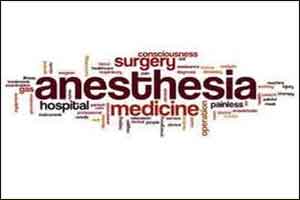- Home
- Editorial
- News
- Practice Guidelines
- Anesthesiology Guidelines
- Cancer Guidelines
- Cardiac Sciences Guidelines
- Critical Care Guidelines
- Dentistry Guidelines
- Dermatology Guidelines
- Diabetes and Endo Guidelines
- Diagnostics Guidelines
- ENT Guidelines
- Featured Practice Guidelines
- Gastroenterology Guidelines
- Geriatrics Guidelines
- Medicine Guidelines
- Nephrology Guidelines
- Neurosciences Guidelines
- Obs and Gynae Guidelines
- Ophthalmology Guidelines
- Orthopaedics Guidelines
- Paediatrics Guidelines
- Psychiatry Guidelines
- Pulmonology Guidelines
- Radiology Guidelines
- Surgery Guidelines
- Urology Guidelines
Caffeine hastens Isoflurane Anesthesia recovery in Humans

Intravenous caffeine may speed up the emergence from isoflurane anesthesia in healthy males without any apparent adverse effects, according to a study published in the journal Anesthesiology.
Robert Fong and his associates had previously reported that caffeine is able to accelerate emergence from anesthesia in rodents. They further conducted a single-centered, randomized, double-blind crossover study to test the hypothesis that caffeine accelerates the emergence from anesthesia in human.
The study included eight healthy males and each participant was anesthetized twice with 1.2% isoflurane for 1 h. During the final 10 min of each session, participants received an intravenous infusion of either caffeine citrate (15 mg/kg, equivalent to 7.5 mg/kg of caffeine base) or saline placebo.
Read Also: Mayo Clinic study : Anesthesia, surgery linked to decline in memory and thinking
The primary endpoint was the average difference in time to emergence after isoflurane discontinuation between caffeine and saline sessions. Secondary outcomes included the end-tidal isoflurane concentration at emergence, vital signs, and Bispectral Index values measured throughout anesthesia and emergence.
Key findings:
- The mean time to emergence with saline was 16.5 ± 3.9 (SD) min compared to 9.6 ± 5.1 (SD) min with caffeine, a difference of 6.9 min, a 42% reduction.
- Participants emerged at a higher expired isoflurane concentration, manifested more rapid return to baseline Bispectral Index values and were able to participate in psychomotor testing sooner when receiving caffeine.
- There were no statistically significant differences in vital signs with caffeine administration and caffeine-related adverse events.
The study concluded that IV caffeine is able to accelerate emergence from isoflurane anesthesia in healthy males without any apparent adverse effects.
For reference log on to https://doi.org/10.1097/aln.0000000000002367

Disclaimer: This site is primarily intended for healthcare professionals. Any content/information on this website does not replace the advice of medical and/or health professionals and should not be construed as medical/diagnostic advice/endorsement or prescription. Use of this site is subject to our terms of use, privacy policy, advertisement policy. © 2020 Minerva Medical Treatment Pvt Ltd